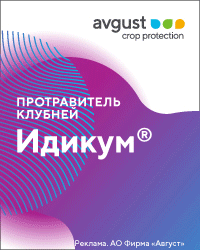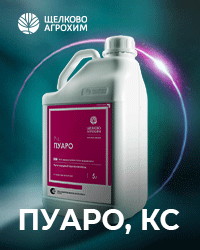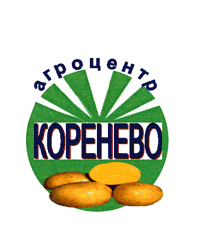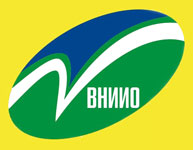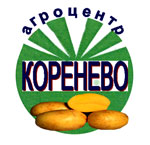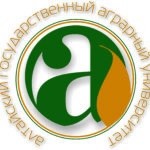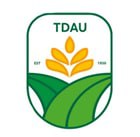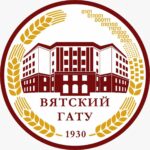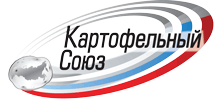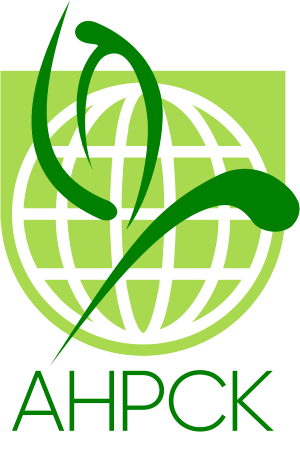UDC 635.1/.8 635.21 632.951
https://doi.org/10.25630/PAV.2023.57.83.002
Alexeeva K.L., Bagrov R.A., Smetanina L.G.
In the conditions of the Moscow region, the effectiveness of new insectoacaricides from the avermectins group to control insect pests and mites of vegetable crops and potatoes was evaluated: the Triumfator (50 g/l emamectin benzoate) and Phytomectin (70 g/l abamectin) preparations. The effect of the preparations was studied on cucumbers and tomatoes in greenhouses to control common spider mite (Tetranychus urticae), tobacco thrips (Thrips tabaci) aphids (Aphididae), greenhouse whitefly (Trialeurodes vaporariorum Wstw.). The effect of the Triumphator preparation was also evaluated against Lepidoptera pests of cabbage, the Phytomectin preparation – against the Colorado potato beetle. Optimal application rates of new insecticides have been established, in which the biological effectiveness against a wide range of pests on the fourteenth day after treatment is 96–100%, and the period of protective action is at least two weeks. On cucumber plants treated with Phytomectin (0.6 l/ha) and Triumphator (0.2 l/ha), the spider mite was completely suppressed on the third and seventh days. After 14 days after treatment, the biological efficacy was 97.7–98.8%, which corresponded to the reference indicator of 96.5%. Against tobacco thrips on greenhouse tomatoes, the Triumphator insecticide showed 100% biological efficacy and is not inferior in this indicator to the reference Proclaim preparation. Against aphids on tomatoes and cucumbers in greenhouse on the third, seventh and fourteenth days after treatment, the biological efficacy of Phytomectin (0.3 l/ha) was 100%. Against greenhouse whitefly on the third and seventh days after treatment, the biological efficacy of the Triumfator was 100%, two weeks after treatment – 98.3%, not inferior in this indicator to the reference Proclaim (0.4 l / ha). Against cabbage moth, the biological efficacy of the Triumfator (0.03 l / ha) was 100%. Against the Colorado potato beetle, the biological efficacy of the Phytomectin on the third and seventh days after the first treatment was 100%, on the fourteenth – 97.5%. Based on the results of three years of research, it was concluded that the new Triumfator and Phytomectin preparations based on avermectins are highly effective to control these pests of vegetable crops and potatoes. After being included in the Pesticides Register, they can be recommended for use in vegetable and potato growing.
Key words: environmentally safe protection, insect pests, spider mite, thrips, aphids, greenhouse whitefly, Lepidoptera, Colorado beetle, insectoacaricides of avermectins group, biological efficacy, tomato, cucumber, cabbage, potato
Alexeeva K.L., D. Sci. (Agr.), chief research fellow. E-mail: vniioh@yandex.ru
Bagrov R.A., Cand. Sci. (Agr.), senior research fellow
Smetania L.G., Cand. Sci. (Agr.), senior research fellow
All-Russian Research Institute of Vegetable Growing – branch of Federal Scientific Centre of Vegetables (ARRIVG – branch of FSBSI FSCVC)
- Modern technologies of integrated protection of greenhouse vegetable crops from diseases and pests / K.L. Alekseeva, L.G. Smetanina, N.A. Engalycheva, D.I. Engalychev, V.G. Selivanov. Practical guide. Moscow. FSBSI Rosinformagrotech. 2021. 96 p. (In Russ.).
- Methods of protection of vegetable crops of the open ground from diseases and pests. Practical recommendations / K.L. Alekseeva, S.N. Derevshchyukov, I.A. Vanyushkina, E.V. Shishkina, N.P. Mishurov, T.A. Shchegolikhina. Moscow. FGBNU Rosinformagrotech. 2022. 112 p. (In Russ.).
- Jafarov M.Kh., Vasilevich F.I, Mirzaev M.N. Avermectins obtaining: biotechnologies and organic synthesis (review). Agricultural Biology. 2019. Vol.54. Pp. 199-215 (In Russ.).
- New preparations based on actinomycete metabolites to regulate the number of pests. V.I. Dolzhenko, L.A. Burkova, G.P. Ivanova, L.I. Nikulina, T.V. Dolzhenko. Biol. plant protection – the basis of stabilization of agroecosystems. All-Russian scientific research institution of biological plant protection. Krasnodar. 2012. Is.7. Pp. 136–138 (In Russ.).
- Modern systems of integrated protection of agricultural plants. D.O. Morozov, S.A. Korshunov, A.A. Lyubovedskaya, N.P. Mishurov, L.Yu. Konovalenko. Scientific analytical review. Moscow. FSBSI Rosinformagrotech. 2019. 95 p. (In Russ.).
- The list of means of production for use in the system of organic and biologized agriculture based on GOST 33080-2016 and international standards of organic agriculture. Union of Organic Agriculture. 2021. 101 p. (In Russ.).
- Litvinov S.S. Methodology of the field experience in vegetable growing. Moscow. Russian Agricultural Academy. 2011. 679 p. (In Russ.).
- Methodological guidelines for registration tests of insecticides, acaricides, molluscicides and rodenticides in agriculture. Ed. Dolzhenko V.I. Saint-Petersburg. VIZR. 2009. 326 p. (In Russ.).
- Wolstenholme A.J., Maclean M.J., Coates R., McCoy C.J., Reaves B.J. How do the macrocycliclactones kill filarial nematode larvae? Invert. Neurosci. 2016. 16(3):7 (doi: 10.1007/s10158-016-0190-7).
For citing: Alekseeva K.L., Bagrov R.A., Smetanina L.G. New bioinsectoacaricides to control pests of vegetables and potatoes. Potato and vegetables. 2023. No5. Pp. 19-23. https://doi.org/10.25630/PAV.2023.57.83.002 (In Russ.).

